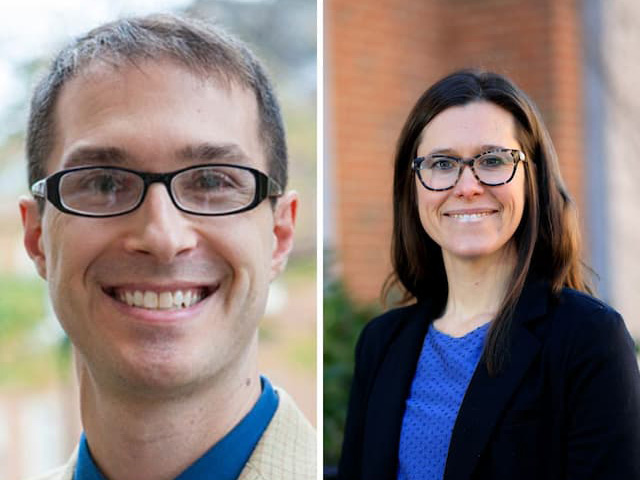
The commitment to faith and learning is one of the things students and alumni cherish most about Samford University. Some of their fondest memories are discussions surrounding faith in their general education and Core Texts courses (formerly known as Cultural Perspectives). The civil discourse in these classes encourages students to think deeper about their faith and gain an appreciation for different cultures and ideas. This integration continues students' Christian teaching beyond their upbringing and, for many, strengthens their relationship with God.
"Knowing that everybody at Samford was willing to have your back, whether that be stopping and praying in the middle of class or writing you down in their prayer request book, helped me grow to be a better Christian and a better advocate for those around me," said political science alumnus Mitchell Whitley '21.
Incorporating faith in teaching is challenging, especially for those not professionally trained to integrate it into their lesson plans.
"I was a Samford student many years ago, deeply influenced by faculty who integrated faith and learning," Geography and Sociology Professor Chuck Stokes said. "That integration takes time to form, reflect and make connections that faculty aren't taught in secular graduate programs. I'm sure it was hard to find time to reflect during the books, pencil and paper world of the faculty who taught me."
And now, with the presence of technology and social media, Stokes said it's even more challenging for faculty to reflect and make those connections.
"It can be difficult to communicate with God amidst the noise, much less do the reflection needed to integrate faith and learning effectively," Stokes said. "Helping faculty create quiet spaces for reflection is critical to advancing this integration."
To enhance faith and learning on campus, Stokes and College of Health Sciences Professor Rachel Hagues applied for the Lilly Faculty Fellows program, sponsored by the Lilly Endowment.
This program, founded in 1991, "seeks to refresh and revitalize a sense of calling for participants as people of faith, teachers and scholars. It provides a space for creative exploration of how Christian thought and practice intersect with the academic vocation. This program also funds and develops Lilly Faculty Fellows programs on college campuses."
"It looked like an excellent opportunity to learn from others who want to do similar things on their campus and experts who have gone before us," Hagues said.
"The Lilly Faculty Fellowship is a rare opportunity to carve out some time to think deeply about how faith informs our scholarship and teaching," Stokes said. "I believe this is a great opportunity for Samford."
Stokes and Hagues were one of six teams awarded the fellowship. They will attend four conferences in Indianapolis and Chicago over the next two years and will also receive $8,000 in start-up funds to inaugurate a Lilly Faculty Fellows program on Samford University's campus.
"There are already some inspiring things going on at Samford regarding faith and learning," Hagues said. "We hope to further that work. For me, it will be an opportunity to deepen my understanding of how to do faith integration well and network with colleagues from other prestigious universities, as well as our own."
"It will also give us a chance to work with faithful and thoughtful scholars at Samford and with the larger cohort of Lilly Faculty Fellows," Stokes said. "Samford will benefit from the Lilly Foundation's investment in our community."
